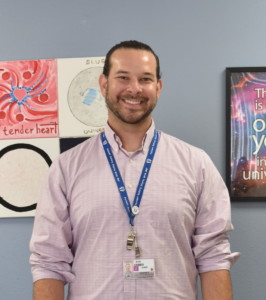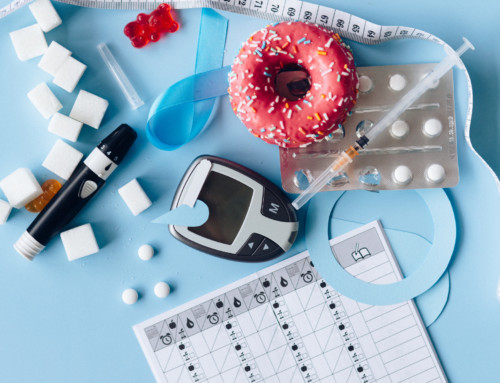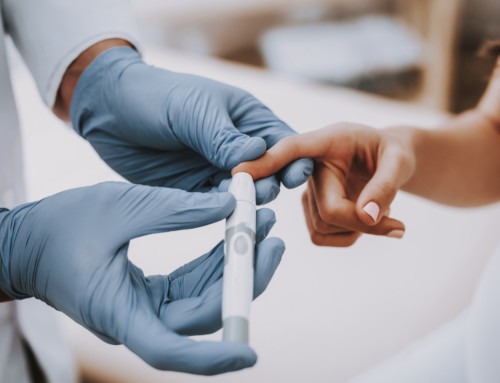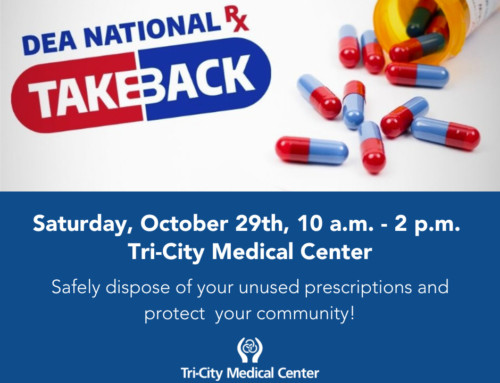June 30, 2022
Jared Lurie, LMFT, a therapist at Tri-City Medical Center’s Outpatient Behavioral Health Services believes that the concept of ‘taking the first step, even if you can’t see the whole staircase’ is so important for those experiencing mental health issues. “Some people are still hesitant to seek treatment for various reasons, but today, especially because of the pandemic, many people are recognizing that they need help and can’t do it on their own,” said Lurie. “We have a community of healthcare providers that are willing and able to provide support and I encourage people to just take that first step and try it out.”
“Some people are still hesitant to seek treatment for various reasons, but today, especially because of the pandemic, many people are recognizing that they need help and can’t do it on their own,” said Lurie. “We have a community of healthcare providers that are willing and able to provide support and I encourage people to just take that first step and try it out.”
Tri-City’s Outpatient Behavioral Health Services include an intensive outpatient program (IOP), as well as group therapies such as Dialectical Behavior Therapy (DBT), Dual Recovery, Cognitive Behavioral Therapy (CBT), Anxiety/Obsessive Compulsive Disorder (OCD) and more, all based on the belief that individuals with mental health and/or substance abuse issues can achieve recovery while engaged in goal-oriented treatment. Services are provided by a team of psychiatrists, psychologists, registered nurses, and licensed clinical social workers, marriage and family therapists, and professional clinical counselors.
 “The outpatient DBT program was the best solution for me because it meant that I needed to get up every other day and go for three hours, which was perfect – not too much, not too little,” said Katie Kuhlman who had experienced several traumatic events throughout her life and was struggling with Post Traumatic Stress Disorder (PTSD), as well as grief from the loss of her mom, dad and grandmother all in the past year. In DBT therapy, clients attend group meetings and work on completing weekly assignments to improve mindfulness, regulate their emotions, understand their needs and wants, and better tolerate distress. “The program gave me stability, as well as a safe space to share my feelings like, ‘I’m having a hard day today.’”
“The outpatient DBT program was the best solution for me because it meant that I needed to get up every other day and go for three hours, which was perfect – not too much, not too little,” said Katie Kuhlman who had experienced several traumatic events throughout her life and was struggling with Post Traumatic Stress Disorder (PTSD), as well as grief from the loss of her mom, dad and grandmother all in the past year. In DBT therapy, clients attend group meetings and work on completing weekly assignments to improve mindfulness, regulate their emotions, understand their needs and wants, and better tolerate distress. “The program gave me stability, as well as a safe space to share my feelings like, ‘I’m having a hard day today.’”
“I had a great experience in the program,” added Kuhlman, an account executive for a software development company. “I took well to the program and the program took really well to me. The class was very communicative, and I think my success had a lot to do with how much I shared and how vulnerable I allowed myself to be.”
“The treatment at Tri-City is not cookie-cutter; we do an exceptional job of assessing the needs of each individual patient to determine the best treatment and level of care,” said Lurie. “This may be a combination of any of our services, which can be done in-person or through telemedicine. Our unique therapeutic modalities and individualized approach are the things that set us apart from other hospitals.”
Tri-City has expanded its anxiety-specific tract as “we are now seeing an increase in the number and severity of anxiety symptoms, such as panic attacks, PTSD and OCD because of the pandemic,” said Lurie. Through Exposure and Response Prevention Therapy (ERP) for the treatment of OCD, the triggers that cause obsessions are lessoned over time through repeated exposure and patients learn to resist their ritualistic behaviors. This is a much different approach than traditional CBT, or talk therapy, to treat anxiety.
Additionally, Tri-City now offers Acceptance and Commitment Therapy (ACT) during which patients learn mindfulness skills that help them to accept their inner feelings and move forward, rather than dwell on negative experiences and difficult emotions.
“My mental health is my number one priority because I don’t experience life in a way that is fulfilling if I’m not committed to it,” said Kuhlman. “I would encourage others to do a self-inventory and seek help if they feel that they are struggling with emotions, conflicts or interpersonal issues. Whether that be through a therapist or a behavioral health program, just look for advice. It doesn’t hurt to ask and talk to someone. You only have to do it one time and then you can decide if you want to do it again.”
“Any person who decides to seek treatment for their mental health is in a much better position to find their strength and value. I tell a person that the fact that you showed up to group is an incredibly huge step.”
To learn more about Tri-City Medical Center’s Behavioral Health Services, call 760-940-5051 or fill out a telemedicine appointment request form.
As part of its COASTAL Commitment Initiative, Tri-City Medical Center partners with NAMI San Diego, a local chapter of the National Alliance on Mental Illness.
Starting in July, 2022, if you are experiencing a mental health crisis, call 988, the national emergency hotline that will replace the National Suicide Prevention Lifeline number.
Jared Lurie,LMFT
Life can be challenging. Everyday problems can become overwhelming. Emotional issues and mental health problems can affect your family, your job and your goals in life. The caring professionals in our North San Diego Outpatient Behavioral Health Services Programs are here to help.
We offer several individualized programs to match your needs. Our trained team provides pre-treatment assessment and a thorough evaluation of each patient. The multidisciplinary staff includes Psychiatrists, Psychologists, Licensed Clinical Social Workers, Marriage and Family Therapists, Licensed Professional Clinical Counselors, Registered Nurses and other care providers who work together to guide you toward a healthier future.
Tri-City’s Outpatient Behavioral Health Services are provided Monday through Friday from 7:30 am to 4:00 pm with extended evening hours from 5:00 pm to 8:00 pm.
Hear from Jared Lurie, LMFT about our PTSD program in our latest YouTube Video!
PTSD - Causes, Symptoms and Treatments







